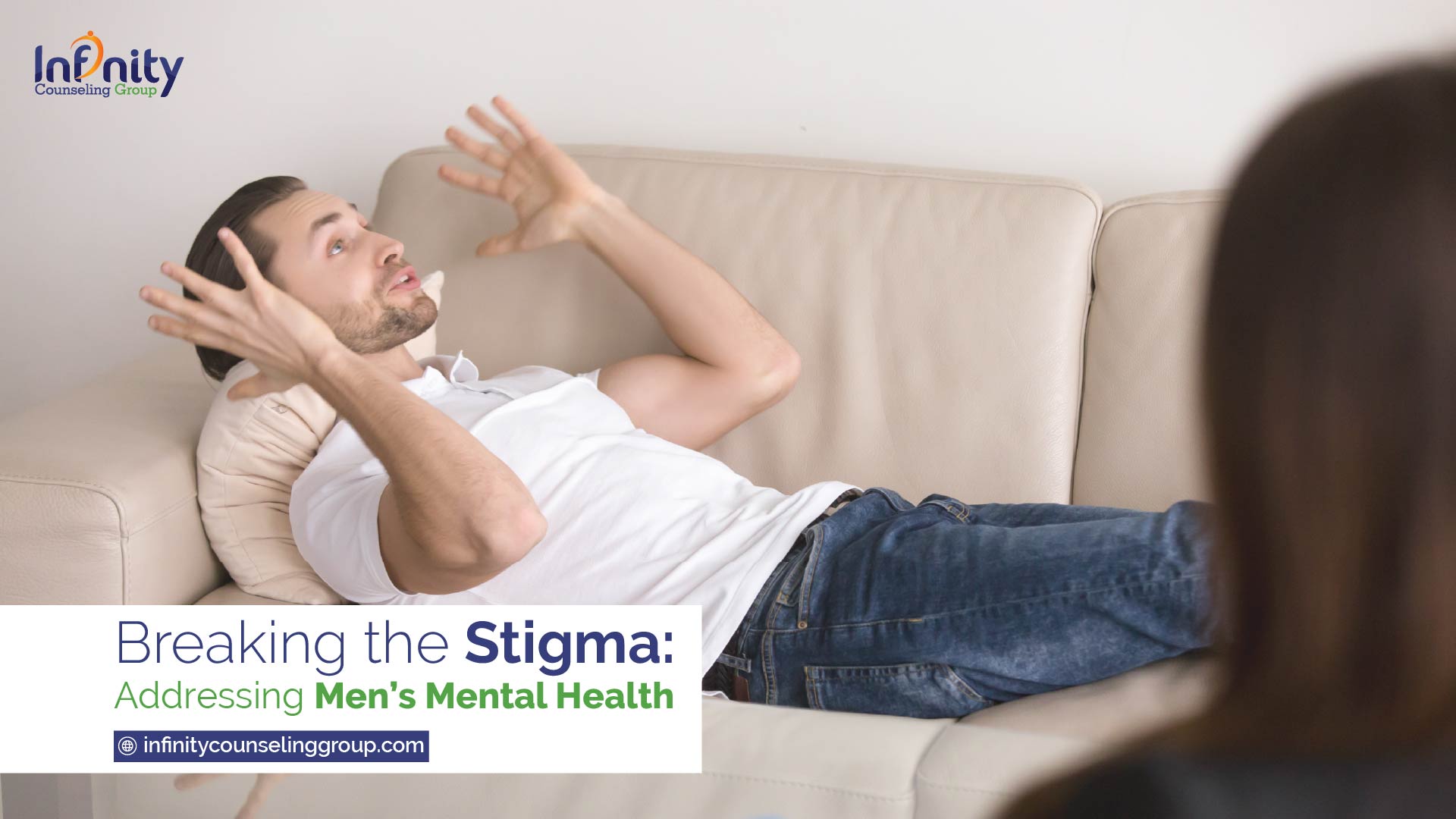
Introduction
Even with rising awareness of mental health, millions of men still drop the ball on this. For too long, society’s expectations of men have been to be strong, stoic, and unemotional. This has created a dangerous situation in which their struggle can remain unheard and unsaid. It’s time to break this cycle, challenge the stereotypes, and promote a culture of open dialogue and support.
June’s Men’s Mental Health Month serves as a stark reminder of the urgent need to address the stigma surrounding men’s mental health. This is not just a necessary step, but a life-saving one.
Why is Men's Mental Health Overlooked?
It makes sense why male mental health is frequently overlooked.
Men’s mental health stigma is pervasive. “Man up” or “boys don’t cry” serve as a greater framework of emotional suppression, which directly inhibits men from admitting they have a problem or reaching out for help; these suppressions can often lead to unaddressed mental health issues down the road.
Research indicates that men are less likely than women to seek therapy despite experiencing high rates of substance abuse, depression, and suicide. The question we must ask is: Why is men’s mental health ignored until it’s too late?
This June, during Men’s Mental Health Month, let’s break the stigma and encourage open conversations about men’s mental well-being.
The Cost of Suppressing Emotions: How Societal Expectations Affect Men's Mental Health
The pressure to “man up” leads to emotional isolation, shame, and, in many cases, destructive coping strategies. Suppressing emotions isn’t a sign of strength—it’s a silent killer. Unfortunately, this stigma results in many instances of untreated mental health issues, which can lead to problems such as depression, anxiety, and even suicide.
A person struggling mentally may seem fine on the outside, but they’re battling an unseen war within. The consequences are too severe to overlook – it’s time to confront these outdated attitudes and establish safe environments for open emotional expression.
Why Do Men Need Therapy?
Therapy is not a weakness; it’s a courageous step toward gaining control over emotional health. A trained therapist can provide men with the coping skills, communication techniques, and strategies they need to overcome life’s challenges.
In our Mental Health Outpatient Therapy Center in Norfolk, VA, men find a non-judgmental environment where they can unpack decades of unspoken stress, trauma, and anxiety. Putting oneself first regarding mental health is a sign of strength, not a sign of weakness. Any man who is struggling mentally and taking this step is at a turning point.
How Life Skills Training Helps Men Break the Stigma
Hands-on experience promotes aspects of mental health recovery. Life Skills Training in Norfolk, VA, offers an alternative approach that enhances emotional resilience in conjunction with traditional therapy. Working toward goals, solving problems, or learning effective communication, the process empowers men to take command of their mental health and challenge masculine social norms.
They empower men to grow in work and personally, not just get by. This robust process of empowering men is essential in overcoming stigma surrounding men’s mental health and creating a culture where asking for help is perceived as strengths-based in nature.
Why Men Shouldn't Wait: Overcoming Barriers to Seeking Help
Waiting until things get worse is a gamble no man should take. Common barriers include fear of judgment, perceived weakness, lack of awareness about available resources, and the belief that they should be able to “handle it” on their own. The earlier the intervention, the better the outcomes.
Reducing the stigma around men’s mental health is a collective effort. Promoting early help and continuous support allows us to see how vital men’s mental health is. The long-term benefits of acting early are substantial.
By encouraging open discussions and improving access to treatment, we can overcome these barriers. Treatment can include peer support groups, outpatient care, or skills training.
Men’s mental health deserves the same attention and urgency as women’s mental health.
Embracing Support and Breaking the Stigma
Keep in mind that men’s mental health is essential, and it’s time we always recognized that.
Whether you are a quiet guy, a loved one who has witnessed them struggle with some changes, or a member of the community who wants to help someone, now is the time to act. This Men’s Mental Health Month, let’s come together and create a space where men feel encouraged to prioritize their mental health.
In Norfolk, VA, programs and outpatient therapies, such as Mental Health Outpatient Therapy and Life Skills Training, offer individualized approaches for men navigating emotional challenges.
Working together, we can contribute to a world where emotional honesty is a strength, rather than a source of shame. Your contribution to the work of breaking the stigma of male mental health is essential. Let’s build toward a future with more shared openness and support.
It’s OK not to be OK, and it takes incredible strength to seek help. Let’s stand up for male mental health and build toward a future where no man has to suffer in silence.
Also Read: Benefits of Therapy: How Counseling Can Improve Mental Health and Well-Being
FAQs
Depression, anxiety, and substance abuse are among the most prevalent mental health issues in men. These often go unrecognized due to cultural stigma and societal expectations around masculinity.
Many men fear being seen as weak or less masculine if they express emotional vulnerability. Social conditioning, lack of role models, and fear of judgment contribute to this silence.
Look for mood changes, irritability, withdrawal from social activities, difficulty concentrating, changes in sleep or appetite, and signs of substance misuse. Emotional flatness or anger outbursts can also be indicators.
